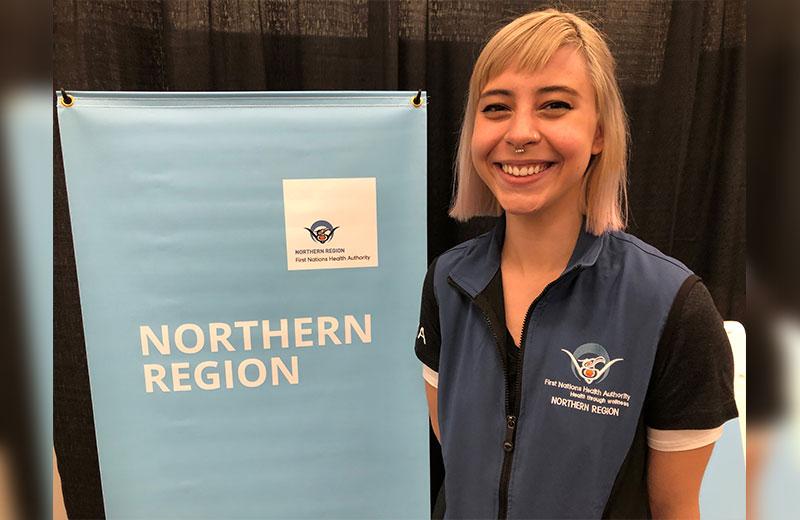Contributed by First Nations Health Authority
Born and raised in the North, from the Tshimian First Nation, Jadyn Koldeweihe is a Nurse Advisor who works with First Nations communities and is dedicated to increasing their knowledge of how to treat chronic conditions. She also has experience working with clients from vulnerable populations.
During the pandemic, however, her work has expanded to include vaccination clinics. We talked with Jadyn to learn more about what this experience has been like for her.
How has the COVID-19 pandemic affected you?
COVID has been a culture shock. It has taken me a long time to get used to this “new normal.” I was accustomed to meeting my colleagues and friends over lunch, seeing clients at their homes for care, and driving down to my home town to see my family. This has been very different or almost nonexistent since the start of the pandemic. I feel very disconnected from my friends, clients, and family. Even though we have social media and chat quite often, our culture is to be in person, and talking over a phone or a computer I don’t feel the same connection I once did. I have lost contact with many clients due to this and it is disheartening.
What has work been like for you this year?
I have been working heavily on the vaccine rollout as well as helping the Northern communities with their vaccine clinics. I have been to a few communities within the Northern region and was able to help support the community deliver the vaccine to their community members—as an immunizer and a site lead.
What has worried you the most during this time?
Definitely the lack of connection and contact I have had with the majority of my high risk/homeless clients. When many community services locked their doors to appointments, this created many barriers to care for them as many people do not have the means to create or attend a scheduled appointment. Working on ways to overcome these barriers and get the care to the clients that need it has been very difficult but also rewarding.
Furthermore, the amount of preventable deaths we are seeing from the opioid crisis is very disheartening. I feel the limited resources available and the decrease in outreach support has been a major factor in this.
What gives you the most satisfaction in your work?
Working with the communities during the vaccine rollout. I love helping the communities plan how they would like the vaccine clinics to happen and then going into the communities to make their plan a reality, it is very surreal. Being a part of these clinics you can feel the anxiety but as the day proceeds that anxiety changes to a sense of relief.














Comments